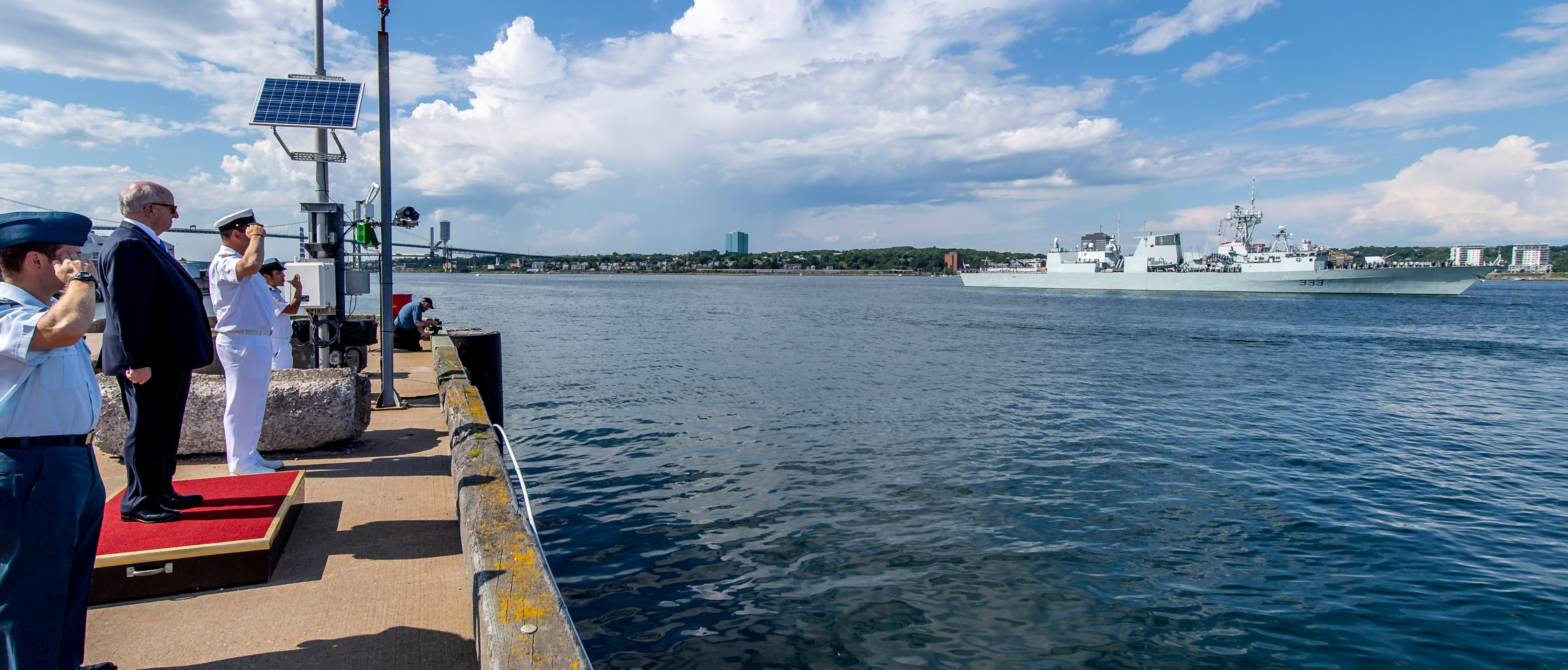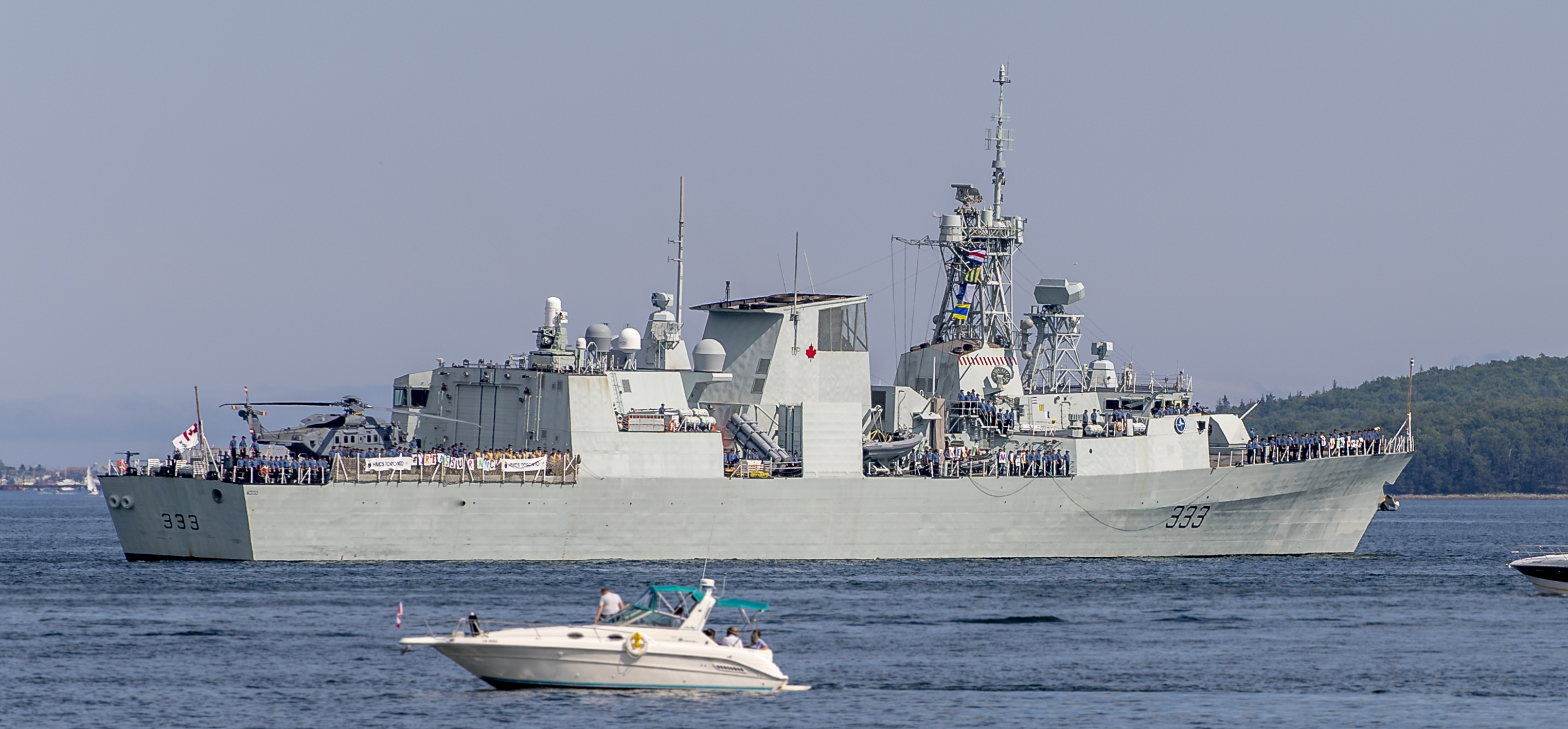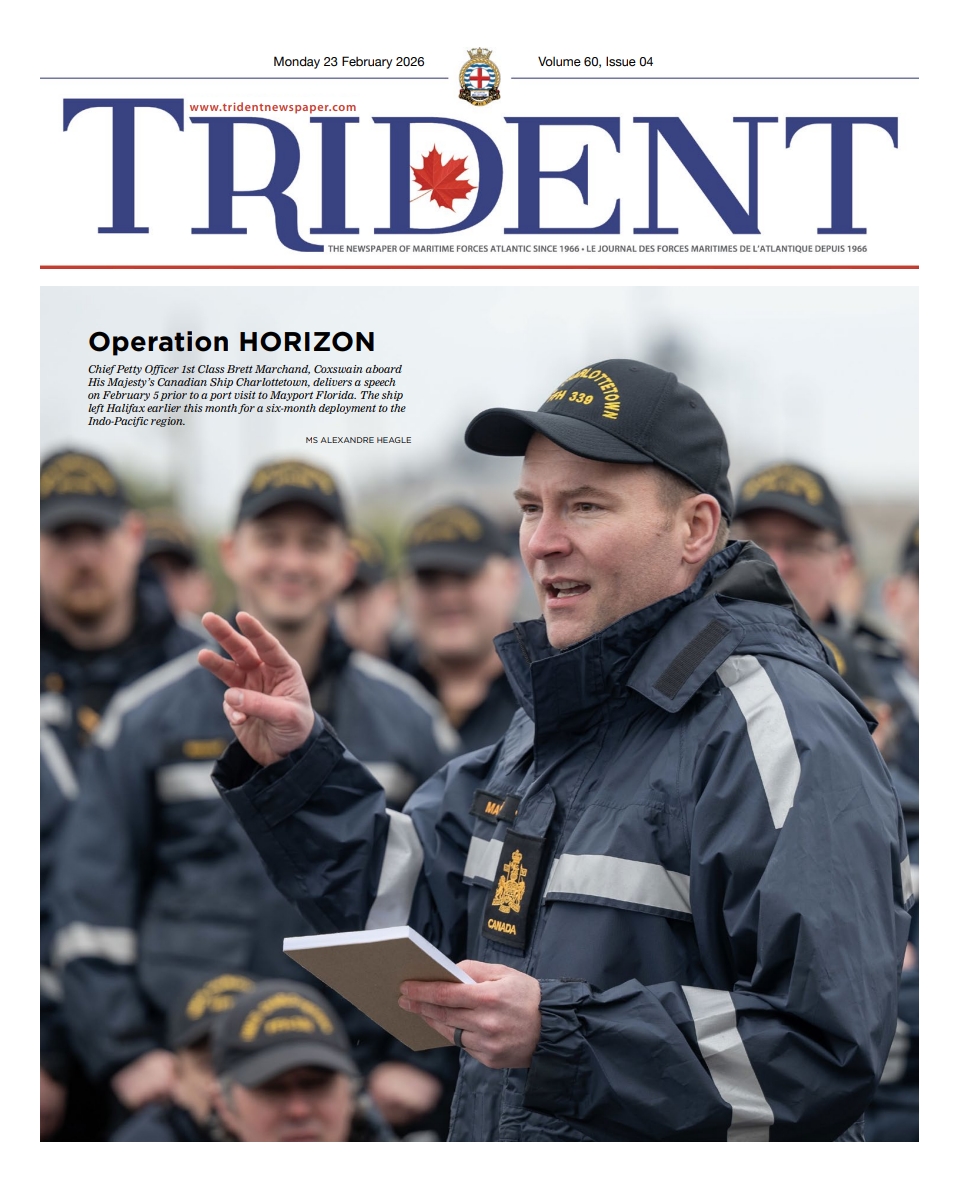
Cmdre Richard Feltham, Commander CCFL, far left, salutes HMCS Toronto as it departs Jetty NB in Halifax on July 25. To his right is The Honourable Arthur LeBlanc, Lieutenant Governor of Nova Scotia.
MARLANT PA
HMCS Toronto departs for Op REASSURANCE under unique circumstances
By Ryan Melanson,
Trident Staff
As HMCS Toronto prepared to depart Halifax on the afternoon of July 25 for a six-month stint deployed to Operation REASSURANCE, there was plenty of chatter about the difficulties brought on by the COVID-19 pandemic and how that will impact the crew and the mission.

MARLANT PA
For LS Gabrielle Garant-Grenon, however, it was best to focus on the positives, With roughly 10 years of service behind her, the Sonar Operator she said she was excited to head to sea and gain more experience on her second major deployment. While the pandemic has had an impact, it hasn’t changed everything, she said.
“Obviously there would normally be a lot more people on the jetty to see us leave, but in other regards, this deployment isn’t so different. Once we leave the wall, this is like any other mission; we just have to do our jobs, focus and work hard as a team.”
That hard work began many months ago as the ship ramped up its readiness level ahead of deploying, and intensified in June, when crew came back aboard – and remained aboard – quarantined away from their families for 40 days prior to departing. Prior to that, they were forced to adjust and conduct important planning while working from home during the height of the pandemic earlier this spring.
Cmdre Richard Feltham, Commander Canadian Fleet Atlantic, said Toronto has set an excellent example of carrying out their responsibilities in the face of obstacles that are unprecedented for a modern Navy.
“I can’t explain how proud I am of what this ship has done, and they haven’t even left yet. To achieve this high state of readiness in a pandemic environment, and overcome the obstacles as they have, is tremendous.”
Cmdre Feltham noted that this is the third time Toronto has deployed on this particular mission, and that this marks the 13th rotation since the RCN began contributing to Op REASSURANCE in 2014, which he said highlights how seriously Canada takes its NATO responsibilities.
Along with Fleet and 12 Wing leadership, only a handful of others attended the departure ceremony in person, including support staff, colleagues, and the Honourable Arthur LeBlanc, Lieutenant Governor of Nova Scotia, and Her Honour Mrs. Patsy LeBlanc. Family and friends were able to watch via live stream online, where Toronto’s Commanding Officer, Cdr Jeff Dargavel, thanked those loved ones who’ve supported his sailors behind the scenes, and who will continue to support them at home after they leave. With the added difficulty of the pandemic, as well as the difficult news in April of the tragic loss of six crew members aboard HMCS Fredericton’s Cyclone helicopter, this lead up to deployment has been uniquely challenging, he said.
“There is no way we could have done it without the undying support of our families, friends and communities.”
He added that pandemic restrictions are likely to prevent the usual port visits from taking place in Europe, and will also make it more difficult to get outside technical support on board if needed. This will require the crew to be more self reliant, and to look to each other for recreation and moral support through the six months.
“We’ve had to make sacrifices and adjust to the new normal; that means saying farewell in this non traditional manner, and it will mean other things over the coming months,” he said, while stressing the importance of the mission.
“The pandemic has changed a lot about our day-to-day to lives, but it hasn’t changed Canada’s commitment to our allies and partners, nor has it changed the resolve of those who would act against our national interest.”
The six-month sail will see Toronto operating primarily in northern Europe with Standing NATO Maritime Group 1, which is currently under Portuguese leadership. The crew expects to come alongside in a number of Baltic states and focus on interoperability with NATO allies through the deployment. The ship will be due back in Halifax early next year.






